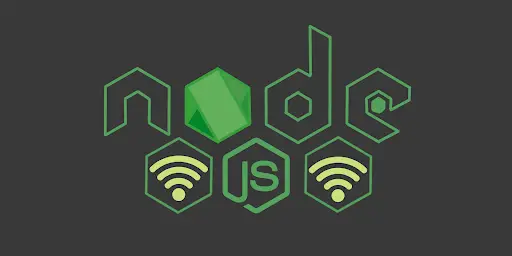Even though Node.js and Django are quite distinct tools, teams often discuss them when deciding which technology to utilize to create online applications.
Similar to how Django makes it possible to use Python in both the front end and the back end of your web project, Node.js also makes it possible to utilize JavaScript, which is generally exclusively used for front-end development, for server-side scripting.
The easiest method to choose between Django and Node.js for your project is to examine their strong and weak points and find out what kinds of projects they are generally used for. This is because both Django and Node.js are just amazing at what they do.
Overview of Node.js
One of the most well-liked open source, back-end JavaScript runtime environments of the present day is Node (also known as Node.js). It may be used to run JavaScript code outside of a web browser on a variety of systems. By using command line tools, Node.js enables developers to fully leverage JavaScript (CLIs).
Additionally, it enables node js development services to create scripts on the server side or back end, for example, executing scripts to create dynamic web page content before delivering the page to the user’s web browser. Additionally, Node.js enables the creation of REST APIs, which speeds up and streamlines the development of online applications.
Node.js is an example of the “JavaScript everywhere” paradigm, which unifies the creation of online applications around JavaScript as opposed to using different languages for client-side and server-side scripts. Virtual machines like Google’s V8 execute JavaScript code on the servers for server-side or backend execution. As a result, Node.js functions as a wrapper for virtual machines similar to them.
Because of how easy and quick it is to create back-end API services using node.js and node.js frameworks, many developers want to master them worldwide. Asynchronous programming is a kind of parallel programming in which a unit of work executes independently from the main application thread and informs the caller thread of its completion, failure, or progress. Node.js includes a ton of built-in modules that provide a ton of amazing capabilities through simple-to-understand asynchronous APIs (APIs ).
Overview of Django
A Python-based open-source web framework that adheres to the MVT (Model View Template) Architectural pattern is called Django. The Django Software Foundation (DSF), an American independent nonprofit organization, created and maintains it. The Django web framework aids in providing applications’ backends with ready-to-implement solutions.
It emphasizes component reuse and “pluggability,” minimal code, low coupling, quick development, and the rule of don’t repeat yourself to make complicated, database-driven websites easier to create (DRY). An extra administrative creation, read, update, and delete interface that may be produced dynamically via introspection and customized by admin models are also available through the Django framework. The Django Framework is used by several well-known businesses, including NextDoor, Mozilla, and Instagram.
Differences Between Node.js and Django
Now that we know what Node.js and Django are, we can compare them and evaluate which one is superior by examining their key differences. Choosing Between Node.js and Django:
- Django is a Python web framework that promotes rapid app development by enforcing a tight structure and providing pre-made answers to frequent web development problems.
- JavaScript is a language created for and often used in frontend-only applications, however, Node.js is a JavaScript runtime environment that enables developers to utilize JavaScript in backend development as well.
- They were both developed as open-source web development tools to provide full-stack development in a single programming language (Python for Django, JavaScript for Node.js).
- Let’s compare their performance, scalability, development speed, security, effectiveness, popularity, and maintainability to one another.
Is Django Superior to Node.js?
Since they can’t truly be compared to one another, it is quite difficult to tell which is better: Django vs Node.js. Both technologies have high performance and scalability. However, Django may be preferable if one wants great scalability, and one may utilize the Node.js framework if one needs high performance.
Conclusion
Both Django and Node.js are fantastic, strong technologies with many application possibilities. Django is the best choice for complicated programs with multiple functionality, scalable MVP development, and strong security. If you work in finance, choose Django. For building APIs, services that need a lot of bandwidth, and microservices, use Node.js.
 Being Human
Being Human




